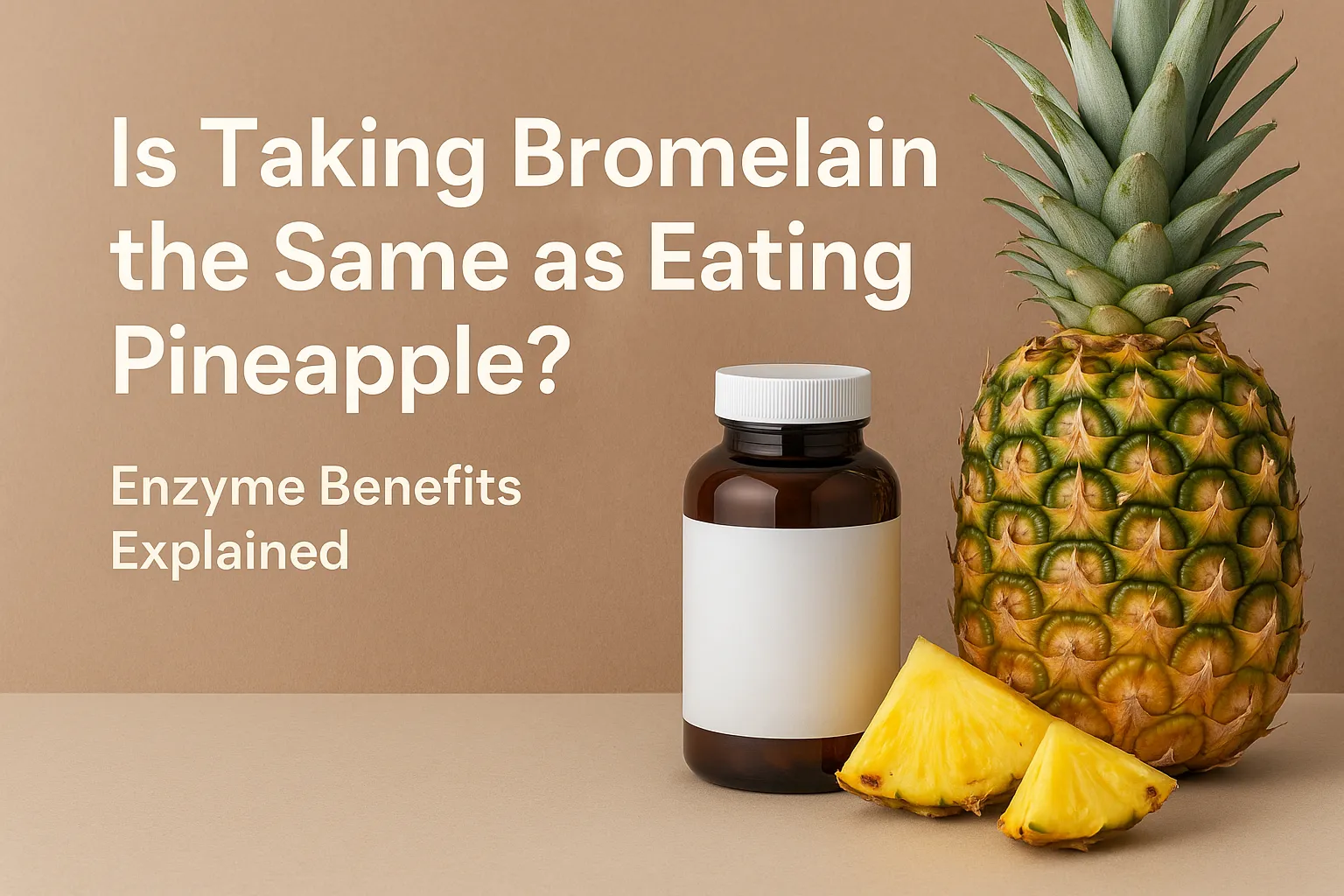Is taking bromelain the same as eating pineapple?
Bromelain is a powerful enzyme best known for its anti-inflammatory and digestive benefits. While pineapple naturally contains bromelain, consuming the fruit isn’t always the same as taking it in supplement form. This article explores the differences in bioavailability, dosage, and therapeutic effect between fresh pineapple and bromelain capsules.
Key Differences Between Pineapple and Bromelain Supplements
- Concentration: Bromelain supplements provide a concentrated dose, far higher than what you'd get from a few slices of pineapple.
- Location in Fruit: Most bromelain is found in the stem of the pineapple, which is not typically eaten.
- Therapeutic Use: For medical effects (like reducing inflammation), supplements are preferred due to standardized dosing.
- Nutritional Value: Pineapple provides fiber, vitamin C, and hydration along with small amounts of bromelain.
Frequently Asked Questions
Can I get enough bromelain by just eating pineapple?
Not really. While pineapple contains bromelain, the amount is relatively small. Supplements offer a much higher and more consistent dose.
Is bromelain from supplements more effective than from pineapple?
Yes, supplements are more effective for therapeutic purposes because they deliver standardized and concentrated amounts of the enzyme.
Is it better to eat pineapple or take bromelain for inflammation?
For inflammation, bromelain supplements are generally preferred. Eating pineapple can support digestion and offer antioxidants but doesn’t provide a medicinal dose of bromelain.
Does pineapple juice contain bromelain?
Fresh pineapple juice may contain bromelain, but the levels decrease significantly with processing and heat. Pasteurized juice often has little to no active enzyme.

